Testimonials: From Fellow to Faculty
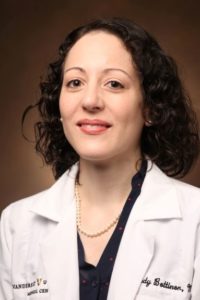
“As I continue to move forward in my career development, I often reference the skills and experiences I have gained through the MSCI program. The curriculum is high-yield and has allowed me to better understand the design and interpretation of research, as well as improve my medical writing, and grantsmanship. In addition to this robust curriculum, the MSCI program provided a community of support that has fostered long-term relationships with mentors invested in my career.”
Wendy Bottinor, MD, MSCI
Assistant Professor, Internal Medicine, Cardiology
Virginia Commonwealth University
AHA CDA
NIH KL2
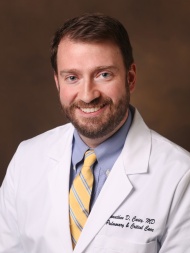
“The MSCI program has been critical to my early successes as a clinical researcher. Beyond providing all the tools needed to design and analyze research projects, the MSCI provided me with excellent career mentorship and structured training in grant writing, peer-review, and medical writing, topics that investigators usually have to figure out on their own. The MSCI degree is truly invaluable to anyone considering a career as a clinical investigator.”
Jonathan D. Casey, MD, MSCI
Assistant Professor, Medicine, Allergy/Pulmonary & Critical Care
Vanderbilt University Medical Center
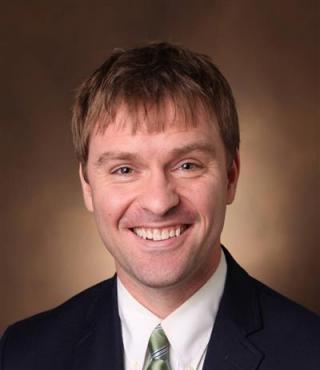 “I’m so grateful for the training I received from MSCI! I never envisioned COVID-19 happening when I started the program, but my goodness I’m glad for the training I received. It’s really helped me really think through pursuing and assessing research during the pandemic.”
“I’m so grateful for the training I received from MSCI! I never envisioned COVID-19 happening when I started the program, but my goodness I’m glad for the training I received. It’s really helped me really think through pursuing and assessing research during the pandemic.”
Justin M. Gregory, MD, MSCI
Assistant Professor, Pediatrics, Pediatric Endocrinology
Vanderbilt University Medical Center
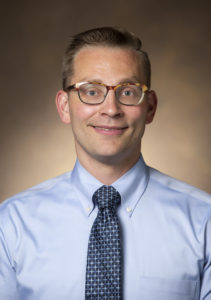 “The MSCI program emphasizes the fundamentals of translational research, from study design to statistical analysis. It harmonizes the resources and strengths of Vanderbilt University Medical Center to further strengthen an outstanding community of translational researchers, of which I am lucky to be a part.”
“The MSCI program emphasizes the fundamentals of translational research, from study design to statistical analysis. It harmonizes the resources and strengths of Vanderbilt University Medical Center to further strengthen an outstanding community of translational researchers, of which I am lucky to be a part.”
Wade T. Iams, MD, MSCI
Assistant Professor, Medicine, Hematology/Oncology
Vanderbilt University Medical Center
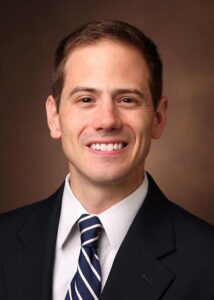
“The MSCI coursework had immediate applicability to my research, and every aspect of the program was focused on fostering my personal goals and development. The greatest value of the MSCI program for me was how it accelerated my connectedness to the outstanding faculty, future collaborators, and exhaustive resources for biomedical research at Vanderbilt. I couldn’t have asked for a better way to kick off a career in academic medicine.”
Joshua M. Lawrenz, MD, MSCI
Assistant Professor, Orthopaedic Surgery, Musculoskeletal Oncology
Vanderbilt University Medical Center
American Cancer Society-Institutional Research Grant (ACS-IRG)
![]()
“Completion of the Vanderbilt MSCI program has been critical in my journey to becoming a successful physician-scientist. I completed the program amid the COVID pandemic, which one could imagine afforded several challenges, each of which was seamlessly navigated by the MSCI leadership team—Eric, Arnita, and Alp. The faculty is world-class and very approachable. I could attempt to list all the skills I learned through the program, but I think most importantly, I learned to be an ethical and thoughtful physician-scientist equipped with the knowledge to answer research questions.”
Donald Lynch, MD, MSCI
Assistant Professor, Medicine, Cardiovascular Health and Disease
University of Cincinnati
Harold Amos Medical Faculty Development Program, Targeting Thromboinflammation to Improve Outcomes Following Transcatheter Mitral Intervention
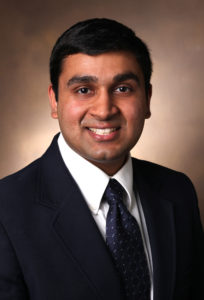
“The MSCI program is truly a family that cultivates advanced skills in statistics, epidemiology, grant writing, and clinical trials which combined have led to a perspective change in the way I approach medical research. Through this program, I have enhanced my own research publication and grant writing. Moreover, my MSCI has taught me critical skills that were instrumental in being selected as the Fellow Editor of Gastroenterology allowing me the opportunity to critically review papers into our premier journal. This program has given me advanced skills to not just be a successful scientist, but a leader in an academic career.”
Rishi Naik, MD, MSCI
Assistant Professor, Medicine, Gastroenterology, Hepatology, & Nutrition
Vanderbilt University Medical Center
 I consider the MSCI program instrumental to my ability to successfully compete for intramural and extramural funding. Interpreting and applying scientific literature to one’s own experiments is like learning a new language, and the MSCI provided me with the foundational skills needed to do just that. Working with the incredible mentors leading the program, Drs. Austin and Ikizler, and receiving guidance from Arnita was icing on the cake!
I consider the MSCI program instrumental to my ability to successfully compete for intramural and extramural funding. Interpreting and applying scientific literature to one’s own experiments is like learning a new language, and the MSCI provided me with the foundational skills needed to do just that. Working with the incredible mentors leading the program, Drs. Austin and Ikizler, and receiving guidance from Arnita was icing on the cake!
Devika Nair, MD, MSCI
Assistant Professor, Medicine, Nephrology and Hypertension
Vanderbilt University Medical Center
AHRQ/PCORI K12

“The mentorship and curriculum in the MSCI program provided me with an invaluable foundational understanding of study design, biostatistics, grantsmanship, and communication of results in patient-oriented research.”
Sharidan Parr, MD, MSCI
Assistant Professor, Medicine, Nephrology and Biomedical Informatics
Vanderbilt University Medical Center

“The MSCI program is a How-to Guide for academic medicine. I enjoyed the class work and experiential learning, and was surprised by how much it shaped my view of clinical medicine and career development, in addition to research. I cannot imagine trying to start a career in clinical research without the toolkit provided by the MSCI.”
Matt Semler, MD, MSCI
Assistant Professor, Medicine, Allergy/Pulmonary & Critical Care
Vanderbilt University Medical Center
“The MSCI program has a robust curriculum designed to develop knowledge in tandem with active 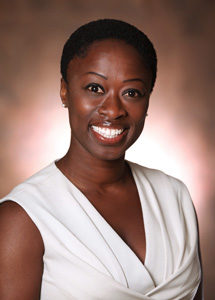 projects. Each class accelerated our work. The mentorship of program faculty is beyond excellent. They are truly invested and helped me lay a strong foundation for a clinical research career.”
projects. Each class accelerated our work. The mentorship of program faculty is beyond excellent. They are truly invested and helped me lay a strong foundation for a clinical research career.”
Maya Yiadom, MD, MPH, MSCI
Associate Professor, Emergency Medicine
Stanford University
NIH NHLBI K23, Improving the Screening Criteria that Trigger an Early ECG to Diagnose STEMI
